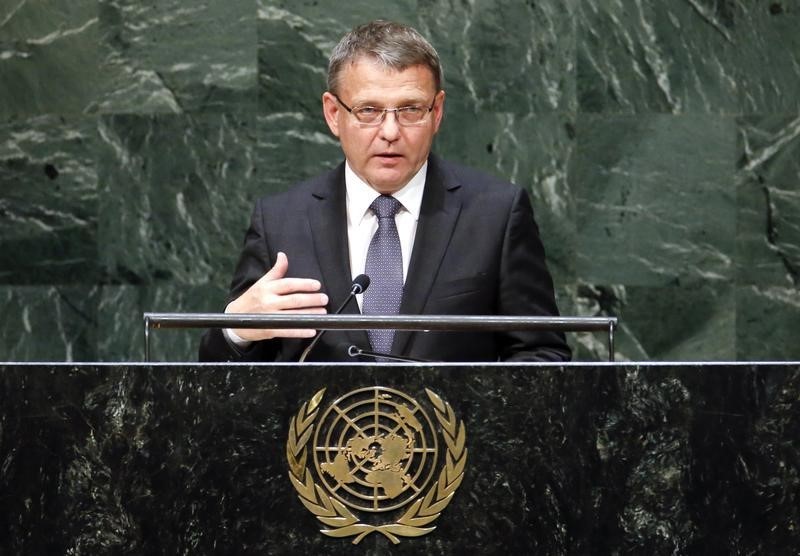PRAGUE (Reuters) - The Czech foreign minister declined to comment on Thursday on a magazine report about suspected espionage by Russian diplomats based in the country but he acknowledged that relations with Moscow were "not ideal".
Citing Czech government sources, weekly magazine Respekt said on Thursday Prague had forced two Russian diplomats to leave the country in the past nine months and had denied a visa to a third who had been due to join the embassy staff.
The foreign ministry, informed of their suspected activities by the Czech counter-intelligence agency (BIS), did not openly expel them in order to avoid repercussions but instead decided not to extend or issue visas to them, the magazine said.
In retaliation, Russia forced two Czech diplomats to leave Moscow, it added.
Asked about the report, Foreign Minister Lubomir Zaoralek said: "I will not comment on that in any specific way. I can only acknowledge that the situation is not ideal, that such situations repeatedly occur and we are solving them."
"Sometimes some diplomats leave or have to leave and then the other side reacts. It is not an ideal situation, but it is regularly repeated and we haven't managed to change it," he told reporters.
BIS has warned of growing Russian espionage activity in recent years, saying it posed one of the biggest security threats to the Czech Republic, a former Soviet satellite state that joined NATO in 1999 and the European Union in 2004.
A BIS spokesman contacted over the Respekt article said the agency would neither confirm nor deny any report about its activities.
"In general I can say that we have quite good knowledge of the activities of Russian intelligence services on our territory and we inform about them in our public annual reports," BIS spokesman Jan Subrt said.
The Russian embassy in Prague also declined to comment on the Respekt report. The Russian foreign ministry in Moscow did not immediately reply to a faxed request from Reuters for comment.
Relations between the West and Russia have deteriorated sharply over the past year due to the Ukraine crisis. The EU and the United States have imposed economic sanctions on Russia over its annexation of Crimea and its support for separatists in eastern Ukraine, prompting tit-for-tat measures by Moscow.
Last year, the Czechs' northern neighbour Poland expelled several Russian diplomats, prompting Moscow to force a number of Polish diplomats to leave.

Poland has been one of the most hawkish NATO and EU member states towards Russia. The Czechs have also backed the EU sanctions against Moscow but several leading politicians have questioned their effectiveness.